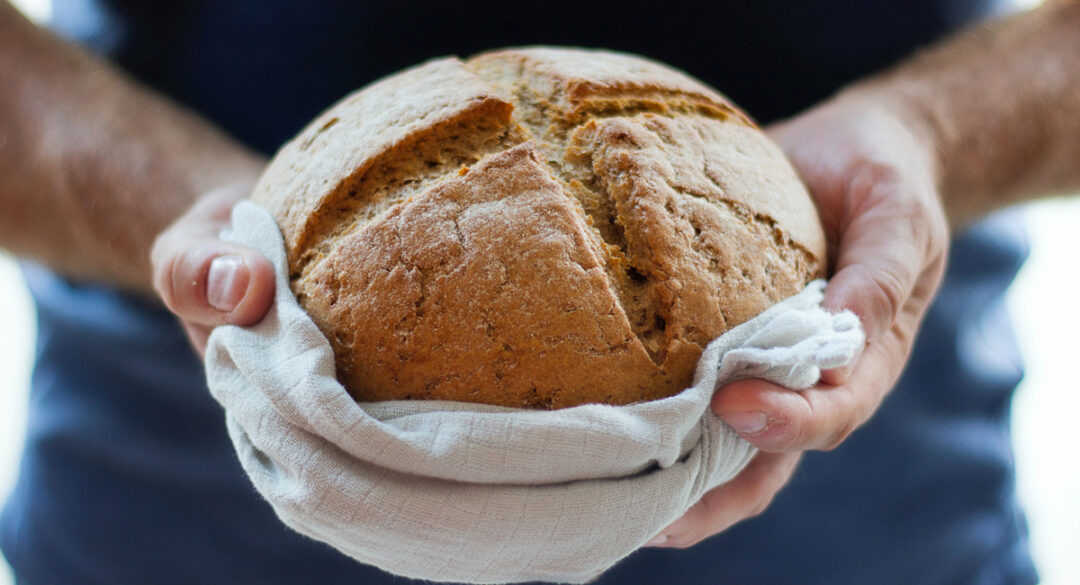Cutting out gluten from the diet has become quite the thing and has spawned numerous gluten-free products. Many people, like myself, who try and limit gluten intake, are not allergic or even intolerant to gluten. And whether bread has gluten or not, it’s still going to give you a huge rise in blood glucose levels.
Is cutting out gluten yet another fad?
What in fact is gluten? Good question. Gluten is the protein found in wheat, barley and rye. But does cutting out gluten really help improve your health?
Let’s start with coeliac disease
This is not a gluten allergy but rather an auto immune disease whereby your immune system attacks your own tissues when gluten is consumed. It can cause gut damage and stop your ability to absorb nutrients. Symptoms can be extremely unpleasant and can include diarroea and abdominal pain.
The problem is that coeliac disease can strike at any age
Research published in the Annals of Medicine in 2010 found that coeliac disease rates rose as people aged.
“In doing these studies, we found that people can eat gluten for many, many years and not get sick. All of a sudden, they lose this capability,” says Dr. Fasano, director of the Center for Celiac Research at Massachusetts General Hospital in Boston and co-author of the book Gluten Freedom.
It can also be misdiagnosed so it’s worth doing a test if you suspect you may have it.
But what about the rest of us?
Wheat is actually highly addictive
We all know the allure of freshly baked bread, don’t we? Due to the high levels of glutamic acid it contains, a natural “flavor-enhancer,” it makes us want us to consume more and more of the same.
Wheat is also high in gluten which is hard to digest and causes inflammation in the gut. This inflammation is the main reason why limiting gluten is a good idea. For optimal health, an anti-inflammatory diet is the way to go.
If you must eat bread, sourdough is a good choice
It has a much lower gluten content and in some studies was shown to act as a prebiotic helping to feed the gut in a beneficial way. It’s also particularly rich in nutrients. It keeps your blood sugar levels much more stable than when eating regular bread due to the beneficial bacteria that help form the dough.
It actually changes the bread molecules, making your body absorb them more slowly which lowers the breads’s glycemic index. And it’s a lot gentler on the gut even for those with a gluten intolerance.
This means that sourdough is much easier to digest
I don’t know about you but I absolutely love sourdough so this is wonderful news. I do eat wheat occasionally but I always try and go for sourdough.
My husband, being a New Yorker, loves a bagel. I can tell you that these are the absolute worst! They have an exceptionally high gluten content and can play havoc with the gut. But will he listen? Of course not. As mentioned before this stuff is highly addictive and has an opiate like affect on the brain.
Sprouted grain breads are another good choice
These are whole grains that have begun to sprout and have many health benefits. The germinating process breaks down some of the starch (making it easier to digest and gentler on the gut) and makes the percentage of nutrients higher. It therefore has more available nutrients than mature grains.
In my local health food market, they have sprouted grain tortillas that are just delicious. My whole family is crazy for the quesadillas we make using them. I slightly butter them and put them in a large frying pan. Add cheese, vegetables, prawns or whatever takes your fancy. An easy lunch that’s quick and tasty.
So why does someone like me, who has no allergy to wheat or gluten, cut out gluten? I actually cut it out completely for 4 years but now I do have it occasionally. I still keep my gluten consumption to a minimum however and when I do eat it, I go for the high quality choices that are easier to digest and full of nutrients. Even these I don’t eat every day. I do it because I avoid foods that cause inflammation and that also cause to me feel bloated and tired.
Many gluten free products are highly processed
They will also send your blood glucose levels sky high. Always check the label for sugars, vegetable oils and other unwanted ingredients. I would far rather eat sourdough, rye or another healthful bread than a highly processed product. So gluten free alone is not necessarily the answer, unless of course you have a genuine allergy or coeliac disease.
I suspect many people do have some sort of intolerance to wheat and/or gluten without knowing it. If you get bloated after eating bread or have any kind of abdominal discomfort this could well be a sign. Try eliminating it for a day or two and see how you feel. Then maybe try one of the choices above and see how your gut reacts.
For meals that contain a lot of wheat, gluten or starch, I recommend taking a digestive enzyme which helps the breakdown and processing of food. We tend to need extra help digesting as we age and I actually now take one with every meal. I like the one below but there are many on the market, so just find one that works for you.
You can get a 5% discount by using the code AGELESS

Comments 1
I will try some of that. digestive enzyme.